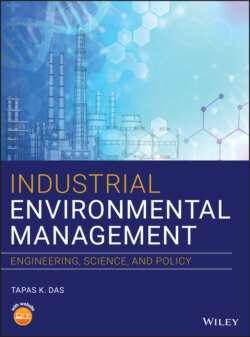Читать книгу Industrial Environmental Management - Tapas K. Das - Страница 103
2.11 Theory/Environmental Law Debate
ОглавлениеEnvironmental law is a continuing source of controversy. Debates over the necessity, fairness, and cost of environmental regulation are ongoing, as well as regarding the appropriateness of regulations vs. market solutions to achieve even agreed‐upon ends.
Allegations of scientific uncertainty fuel the ongoing debate over greenhouse gas regulation and are a major factor in debates over whether to ban particular pesticides. In cases where the science is well‐settled, it is not unusual to find that corporations intentionally hide or distort the facts, or sow confusion (Oreskes and Conway 2010).
It is very common for regulated industry to argue against environmental regulation on the basis of cost (Pizer and Kopp 2003). Difficulties arise in performing cost‐benefit analysis of environmental issues. It is difficult to quantify the value of an environmental value such as a healthy ecosystem, clean air, or species diversity. Many environmentalists' response to pitting economy vs. ecology is summed up by former Senator and founder of Earth Day Gaylord Nelson: “The economy is a wholly owned subsidiary of the environment, not the other way around” (Nelson et al. 2002). Furthermore, environmental issues are seen by many as having an ethical or moral dimension, which would transcend financial cost. Even so, there are some efforts underway to systemically recognize environmental costs and assets, and account for them properly in economic terms.
While affected industries spark controversy in fighting regulation, there are also many environmentalists and public interest groups who believe that current regulations are inadequate, and advocate for stronger protection (Hiss 2014; Stein and Beckel 2004). Environmental law conferences – such as the annual Public Interest Environmental Law Conference in Eugene, Oregon – typically have this focus, also connecting environmental law with class, race, and other issues.
An additional debate is to what extent environmental laws are fair to all regulated parties. For instance, researchers Preston Teeter and Jorgen Sandberg highlight how smaller organizations can often incur disproportionately larger costs as a result of environmental regulations, which can ultimately create an additional barrier to entry for new firms, thus stifling competition and innovation (Teeter and Sandberg 2017).
